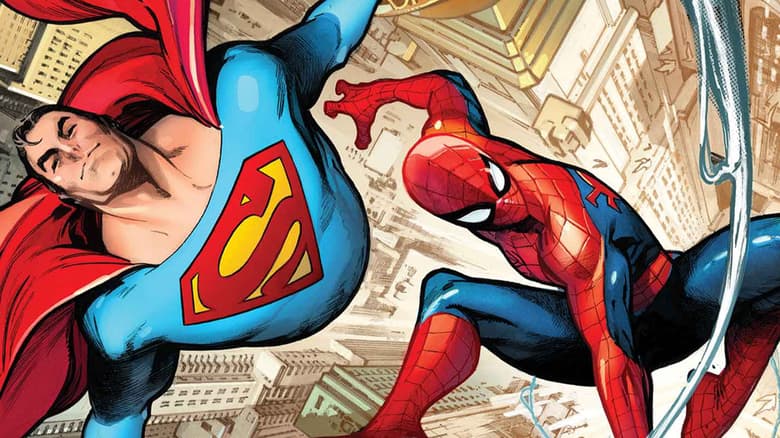Beyond Sensational: Tom Brevoort Explains How Spider-Man Changed Comics
Marvel VP Executive Editor Tom Brevoort and writer J.M. DeMatteis discuss how Spider-Man's introduction changed comics forever.
After Spider-Man came onto the scene in AMAZING FANTASY (1962) #15, nothing was ever the same again in comics. The character quickly became one of the Marvel Universe’s most major and important players, and since his debut, he has teamed up with virtually every notable hero across thousands of books. A big part of that success owes to how groundbreaking Spider-Man was for the time, and Marvel VP Executive Editor Tom Brevoort knows exactly how and why this Stan Lee/Steve Ditko creation changed everything.
In “Spider-Man’s Sensational Origins,” part of the wall-crawler’s ongoing 60th anniversary celebration, Brevoort was asked about the landscape of comics into which the future pop culture sensation arrived. “In the world of 1962, by and large, super hero comics were fairly simple things, particularly after the rise of the Comics Code,” Brevoort said, referring to how the Comics Code Authority drastically limited what could be shown on the page at the time. “Even seeing super heroes […] punch a villain was not done all that much. Most of the stories were sort of puzzle-based. There'd be a challenge. There'd be a mystery. There'd be a question. There'd be a secret. There was a lot of running around, maintaining your secret identity and not really doing a heck of a lot much more beyond that.”
Brevoort also noted that most characters were adults without much personality outside of their superheroics. However, that all changed when Spider-Man, who built on a precedent established by the Fantastic Four in 1961, debuted.
“The story,” he explained, “is not about Spider-Man. The story is about Peter Parker. […] The civilian identity wasn't just something to set a character up in a place where he put on his costume and the rest of the story is about him battling whatever. You'd go through [early issues of] SPIDER-MAN, and Peter Parker would just be Peter Parker for like half the comic book. And that was seen as crazy. Like, no kid's going to want to read about this guy doing his laundry and being bothered by his bully and trying to scrape two nickels together to make the rent or whatever. But that was all the stuff that made people interested and care about Spider-Man and his problems and his struggles and made him feel like much more of a real person than any superhero had been up to that point.”
J.M. DeMatteis, who penned such beloved Spidey tales as “Kraven’s Last Hunt” and was also part of the conversation in "Spider-Man's Sensational Origins," added that humanity and relatability was part of what made him fall in love with the character.
Lee and Ditko chose to focus more on Peter as an individual than was common at the time and, as a result, the character’s popularity exploded. In the years that came after, Spider-Man created a ripple effect in which the personal lives of comic book heroes were examined and explored more than ever before, culminating in one spectacular legacy.
Marvel is celebrating Spider-Man's 60th anniversary all month long! Stay tuned for more Spider-fun right here on Marvel.com.
You can grab these comics and more digitally or at your favorite local comic book shop. Be sure to ask your local shop about their current business policies to observe social distancing or other services they may offer, including holding or creating pull lists, curbside pick-ups, special deliveries, and other options to accommodate. Find and support your local comic book shop at ComicShopLocator.com or by visiting Marvel.com/LoveComicShops.
For digital comics, all purchases in the Marvel Comics app can be read on iPhone®, iPad® and select Android™ devices! Our smart-paneling feature provides an intuitive reader experience, ideal for all types of mobile device and tablet users! Download the app on iOS and Android now!
The Daily Bugle
Can’t-miss news and updates from across the Marvel Universe!







